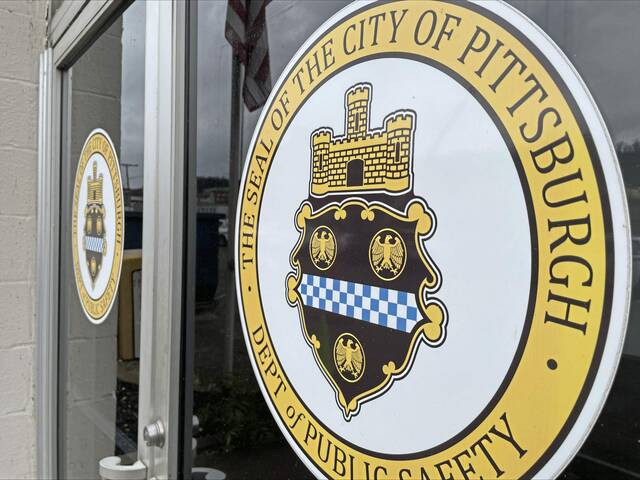A pair of audits from the Pittsburgh and Allegheny County controllers on Wednesday recommended increased staffing for the county’s 911 call center, more focus on tracking emergency response times and improvements to programs that ensure first responders’ well-being.
“While funding and operational challenges exist in each of our respective governments, public safety can never be overlooked or shortchanged,” Pittsburgh Controller Rachael Heisler and Allegheny County Controller Corey O’Connor said in a joint statement.
The pair said they hoped their audits would help public safety systems operate as efficiently as possible.
“At any moment, the life of any resident or visitor could depend on these critical functions operating as intended and our workers being at their best and most prepared,” the two officials said.
The average number of telecommunications officers on staff at the county’s 911 call center in jumped to 249 in 2024 from 243 the year prior.
But that staffing, O’Connor’s audit said, “is not sufficient to most effectively operate the call center at the present time.”
The audit recommended aiming for 275 telecommunications officers.
The audit acknowledged mandatory overtime has dropped since the covid-19 pandemic. Overtime mandates do still occur, though, “and voluntary overtime is still very high,” the audit said.
In a written response attached to the report, Matthew Brown, the county’s chief of emergency services, said officials would explore adding more staffers.
Longer response times
In Heisler’s audit of the city’s first responders, she noted some issues regarding emergency response times.
Pittsburgh EMS sets a goal of responding to calls within eight minutes and 59 seconds.
But last year, they took longer than that to respond to the highest-priority calls more than half the time, the audit found.
EMS response times increased 9% from 2023 to 2024, according to the report.
Still, an analysis of responses to 80 serious heart-related incidents in 2023 and 2024 showed a 100% patient survival rate.
Assistant Public Safety Director Takeena White in a written response attached to the audit said EMS has started using a GPS tracking system aimed at quickening response times and helping supervisors manage the bureau’s operations.
Police do not have a set standard for response times.
But the audit showed that from 2023 to 2024, the bureau’s average response time to the most urgent calls increased by four seconds to eight minutes and 15 seconds.
Crime analysts will evaluate possible causes, White said.
Heisler noted the fire department struggled to provide response data while transitioning to a new reporting system. But White said new reporting software implemented in August makes that information easier to access.
The fire department in 2023 took four minutes and eight seconds to respond to a call on average.
In 2024, that figure dropped to three minutes and 56 seconds, outperforming a national standard that sets a goal of four minutes.
Managing stress
Both O’Connor and Heisler raised concerns about employee wellness in their audits.
“We know that our first responders face disproportionate levels of work-related stress and fatigue, and we need to make sure that they are highly aware of the services available and encouraged to use them when needed,” Heisler said.
Heisler’s audit surveyed a small sample of first responders from fire, police and EMS. Only 17% of them responded.
Of those who did respond, 60% reported their schedules did not allow for adequate rest and recovery. Some workers said they were unaware of wellness programs that are available to them.
O’Connor’s audit recommended improvements to peer support programs and better training to help supervisors support workers who are struggling.








